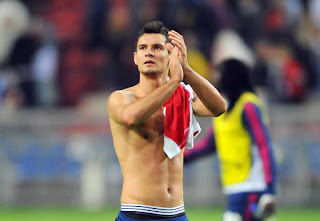Spotlight's
journalists-uncover-major-scandal-and-it's-all-based-on-a-true-story premise
inevitably reminds of All The President's Men, although Spotlight's topic is
the altogether murkier, skin-crawling and vein-popping anger-inducing
uncovering of the widespread, decades-long issue of Catholic priests abusing
children within their parishes - and the subsequent cover-up of this by the
Church's most senior authorities, on many occasions simply allowing the priests
to be moved to another area (and therefore giving complicit approval for the
abuse to carry on until it looked as though the whistle would be blown again).
No funny Watergate and Tricky Dicky Nixon style jokes to be had from this one,
then.
However, despite the stomach-churning details of Spotlight
being the sort of subject that might get me marching up and down in front of my
local church waving protesting placards and the like on a particularly energetic day, director Tom
McCarthy and screenwriter Josh Singer wisely decide to sidestep overblown
emotion, tears, and histrionics for a straightforward re-telling of how the
Spotlight investigative team at the Boston Globe blew the lid off the scandal
in the early 2000's as they pieced together various anecdotes, documented evidence,
victim testimonies and more and eventually went on to claim the Pulitzer Prize
for Public Service in 2003. The small, uncomfortable details of the abuse as
revealed by a range of differing victims is enough to make us squirm and feel
uncomfortable; what is equally shocking is the numbers and scale of the
cover-up - hearing it re-iterated again here in stark fact drills home the
sheer horror of the situation, the arrogance and audacity of those in positions
of power who abused the trust of their communities, and the complicity of the
wider community in turning a blind eye to such a repugnant and widespread
scandal.
From a cinematic point-of-view, Spotlight does not try any spectacular
tricks or effects in order to tell its rather grim story - and I thought that
to do so would feel rather like a disservice to many of the surviving victims
of the abuse. Instead it gets on with its business coolly and unfussily,
drawing us in with both revulsion and fascination after a fairly slow opening
15 minutes and eventually gripping us as the team peel back further layers of
corruption and appalling behaviour by those 'in the know' - in this sense, it's
rather like a well-written broadsheet journalistic piece- not intended to win
prizes for its style and showiness, but drawing us in with facts and an overwhelming
urge to find out just what happens in the end - the lure of the headline (often
gruesome, equally often compelling) pushing us on to read more.
The ensemble cast is uniformly excellent, and McCarthy
smartly does not depict any of them as superheroes or guardians of journalistic
morality and integrity, just a bunch of normal people trying to do their jobs
and get the truth out there. I was particularly impressed with the work of Mark
Ruffalo and Rachel McAdams, who brings her usual warmth, likeability and
underrated acting skills to the role of Sacha Pfeiffer - it's a shame that her
unshowy part didn't stand a chance in the Supporting Actress Oscar category
this year against Alicia Vikander in a role for The Danish Girl that clearly
should have been nominated as lead.
Well-crafted, straightforward, to-the-point and quietly
powerful, Spotlight's beating of The Revenant to the Best Picture Oscar this
year may have surprised many, but it is by no means an unworthy winner.

















